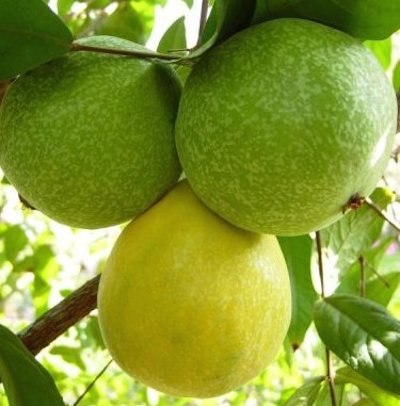Araza (Eugenia stipitata) can be described as a very sour fruit; the fruit is sour but versatile due to its pleasant flavour, texture, colour, and smell. They are commonly used to make tropical drinks and cocktails, popsicles, and ice cream. The bushy trees can be maintained at six feet or less, or trained as a standard with a single trunk.
The fleshy petals of its beautiful flowers are also appreciated. In addition, there is a wide variety of industrialized products on the market in the form of paste, jam, crystallized fruits preserves in syrup and liqueur. The flesh can be used in the soft drinks and ice-cream industries. The fruit is rarely eaten raw because of its acidity (pH 2.4 in the case of the juice) but if it does it is eaten out of hand.
Unlike camucamu (Myrciaria dubia), more than 20 percent of whose fresh weight is represented by 2 percent of ascorbic acid, araza fruit has more vitamin C than oranges and this boost the immune system drastically and protects the body from infections. The golden fruit is especially popular at New Year’s, for it is believed to bestow good fortune on a household. At year’s end-the Japanese, who call it bushukan, also buy it.

In Brazil one of the most common drinks is the Araza succo which is water based. Alcoholic beverages like smoothie’s water based. Many fruits are very rich in important vitamins. If you find yourself taking a vitamin C supplement to ward off colds and keep your energy levels high throughout the day, eat a fruit.
Different fruits contain different proportions of different vitamins, so by consuming a rich mixture of fruit you can be sure you are getting a nicely balanced vitamin supply. Fruits also contain lots of fibre which helps to keep your bowels healthy. Problems such as constipation and diverticular disease are less likely to develop.









